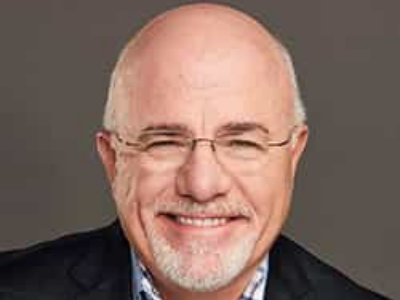New Hampshire teen who killed sister-in-law and nephews sentenced to 60 years to life in prison
News > National News

Audio By Carbonatix
6:09 AM on Friday, October 3
By HOLLY RAMER
CONCORD, N.H. (AP) — A young New Hampshire man who was 16 when he killed his sister-in-law and two young nephews was sentenced Friday to 60 years to life in prison for crimes his lawyer said he doesn’t remember committing.
Eric Sweeney, now 19, had been living with his older brother’s family in Northfield for three years when he fatally shot Kassandra Sweeney, 25, and her sons, 4-year-old Benjamin and 23-month-old Mason, in August 2022.
Originally charged with first-degree murder, Sweeney instead pleaded guilty in August to lesser second-degree murder charges. At a sentencing hearing Friday, defense lawyers sought a prison term of 40 years to life, based in part on the “immeasurable trauma” Sweeney suffered as a child, including a mother who “dragged him through drug dens and a succession of abusive father figures.”
“We are asking the court today to embrace compassion so everyone in this courtroom can move forward with healing,” said attorney Lauren Prusiner, who for the first time raised the possibility that her client may have retrieved the gun intending to kill himself and then panicked.
“That version of events is also possible,” she said. “We do not know what happened. Eric can still not remember.”
Prosecutors asked for a sentence of at least 97 years — consecutive sentences of 35 years to life for Kassandra Sweeney’s death and 40 years to life for each of the boys’ deaths, with up to 18 years suspended if goals related to education, mental health treatment and good behavior were met.
The sentence imposed will allow up to six years to be suspended, making Sweeney eligible for parole at age 68 when taking into account time already served, according to Judge John Kissinger, who said he spent many hours trying to reconcile the horrific abuse Sweeney suffered as a child and the despicable violence he inflicted on his victims.
The result “reflects both the magnitude and nature of his crimes but also provides a path for the defendant — a difficult path — for him to achieve some measure of redemption and rehabilitation,” Kissinger said.
Though the defense emphasized Sweeney's youth, Assistant Attorney General Bethany Durand said that does not excuse his actions.
“He made the choice. He made the decision to shoot six times to kill the people he now professes to have loved,” she said. “These killings were unprovoked and senseless. They were heinous.”
Sweeney’s older brother, Sean, and his wife were serving as the teen’s guardians when Sweeney’s behavior, including lying and violating house rules, began causing tensions in the home. Prusiner said the couple had tried to terminate their guardianship, and that Sweeney’s depression deepened after the family moved away from his trusted therapist.
Kassandra Sweeney, a nursing assistant, worked nights so she could care for her boys during the day. On the morning of the killings, she had fixed them a snack and was recording videos of them playing and laughing to send to her husband. Four minutes after she sent the last video, all three were shot in the head, Benjamin through the hood of the dinosaur costume he was wearing.
Prosecutors played some of the videos in court Friday, including the older boy describing his brother as his best friend “’Cause I love him.” The judge also heard from more than a dozen of the victims’ relatives and friends. Some speaking through tears, they described Kassandra as a smart, sassy and devoted mother to her energetic, affectionate boys.
“Remember who they were,” said Kassandra’s cousin, Alizabeth Dawson. “Their lives mattered. Their futures mattered. But the loss suffered is immeasurable, and the hole their loss has left in our family can never be filled.”
Though one family member said she has forgiven Sweeney based on her faith’s teaching about the nature of evil, others expressed hatred for him. Several suggested he should have killed himself, and a few said they hoped fellow prisoners would abuse him.
“Rot in hell,” said Peg Sweeney, who said she had once believed in and loved him as much as her other grandchildren. “You can erase ‘Gram’ from your vocabulary.”
Sweeney initially told police he found his sister-in-law and nephews on the floor after hearing something break and a man with a deep voice yelling. He left the house and called his brother, who called police.
A psychologist who testified for the defense said Sweeney’s lie might have been an extreme defense mechanism stemming from his deeply traumatic childhood. Another psychologist testified about the impact of childhood trauma on brain development and decision making, saying it was extremely rare for someone to be subjected to all 10 of what experts call “adverse childhood experiences” as Sweeney was.
“He stood on the street at six years old asking bystanders to buy him food,” defense attorneys wrote in their sentencing memorandum. “He wore shoes with the soles coming apart, and worried that any toys he received for Christmas through Toys for Tots would be sold for drug money.”
Sweeney did not testify at the hearing and remained facing the judge while others testified behind him. His attorney said his lack of outward emotion and memory are symptoms of his “broken brain” and that he still has not processed the reality of what he did.
“It’s not that he doesn’t want to say something," Prusiner said. “It's that even after three years, he can’t find the words.”
Paul Galasso, a volunteer tutor who worked with Sweeney in a youth detention center after his arrest and continues to visit him in jail, said Sweeney texted him after his guilty plea.
“I’d understand if you don’t want to see me anymore,” he said. “I did something really bad and I’m sorry.”








